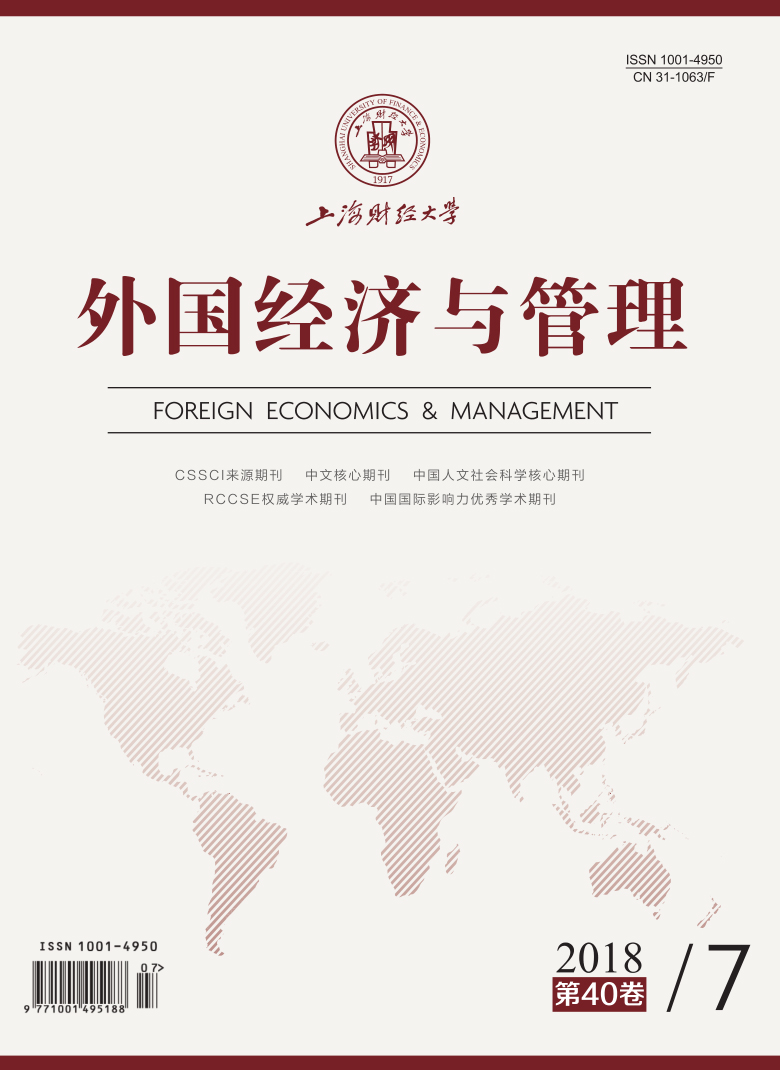本文在“合”理论的框架下,结合开放资源、开放竞争的新商业特征,进一步阐述了联合战略的内涵,并提出了联合战略的三种类型:垂直联合、水平联合和侧向联合。为了探索企业实施联合战略的动因和影响,本文基于中国21个城市的796家中小企业的问卷调查数据进行实证检验,结果表明:(1)企业管理外部关系的能力对3种联合战略都有正向影响;(2)企业所面临的政府规制只对侧向联合战略具有正向影响;(3)企业家的业界联系对3种联合战略都有正向影响;(4)企业家的政府联系对垂直联合和侧向联合具有正向影响;(5)联合战略有利于中小企业提高速度优势、成本优势和客户满意度。本文的研究结论不仅夯实了“合”理论的研究支柱,丰富了中国管理理论的构建,也为新兴经济中资源不足的中小企业通过联合战略实现快速发展提供了有益的借鉴和启示。
联合战略的动因及其对竞争优势的影响——基于“合”理论的视角
摘要
参考文献
11 Barney J B. Firm resources and sustained competitive advantage[J]. Journal of Management, 1991, 17(1): 99–120. DOI:10.1177/014920639101700108
12 Baum J A C, Calabrese T, Silverman B S. Don’t go it alone: Alliance network composition and startups’ performance in canadian biotechnology[J]. Strategic Management Journal, 2000, 21(3): 267–294. DOI:10.1002/(ISSN)1097-0266
13 Buchanan J M. An economic theory of clubs[J]. Economica, 1965, 32(125): 1–14. DOI:10.2307/2552442
14 Burgess Jr G H. The economics of regulation and antitrust[M]. New York: Addison Wesley, 1997.
15 Cullinane N, Dundon T. The psychological contract: A critical review[J]. International Journal of Management Reviews, 2006, 8(2): 113–129. DOI:10.1111/ijmr.2006.8.issue-2
16 Dagnino B G, Rocco E. Coopetition strategy: Theory, experiments and cases[M]. London: Routledge, 2009.
17 Das T K, Teng B S. A resource-based theory of strategic alliances[J]. Journal of Management, 2000, 26(1): 31–61. DOI:10.1177/014920630002600105
18 Dwyer F R, Welsh M A. Environmental relationships of the internal political economy of marketing channels[J]. Journal of Marketing Research, 1985, 22(4): 397–414. DOI:10.2307/3151585
19 Gulati R. Social structure and alliance formation patterns: A longitudinal analysis[J]. Administrative Science Quarterly, 1995, 40(4): 619–652. DOI:10.2307/2393756
20 Gulati R. Network location and learning: The influence of network resources and firm capabilities on alliance formation[J]. Strategic Management Journal, 1999, 20(5): 397–420. DOI:10.1002/(ISSN)1097-0266
21 Gulati R, Nohria N, Zaheer A. Strategic networks[J]. Strategic Management Journal, 2000, 21(3): 203–215. DOI:10.1002/(ISSN)1097-0266
22 Harrison J S, Hitt M A, Hoskisson R E, et al. Resource complementarity in business combinations: Extending the logic to organizational alliances[J]. Journal of Management, 2001, 27(6): 679–690. DOI:10.1177/014920630102700605
23 Inkpen A C, Tsang E W K. Social capital, networks, and knowledge transfer[J]. The Academy of Management Review, 2005, 30(1): 146–165. DOI:10.5465/amr.2005.15281445
24 Lee C, Lee K, Pennings J M. Internal capabilities, external networks, and performance: A study on technology-based ventures[J]. Strategic Management Journal, 2001, 22(6-7): 615–640. DOI:10.1002/(ISSN)1097-0266
25 Luo Y D. A coopetition perspective of global competition[J]. Journal of World Business, 2007, 42(2): 129–144. DOI:10.1016/j.jwb.2006.08.007
26 Mitsuhashi H, Greve H R. A matching theory of alliance formation and organizational success: Complementarity and compatibility[J]. The Academy of Management Journal, 2009, 52(5): 975–995. DOI:10.5465/amj.2009.44634482
27 Oliver C. Sustainable competitive advantage: Combining institutional and resource-based views[J]. Strategic Management Journal, 1997, 18(9): 697–713. DOI:10.1002/(ISSN)1097-0266
28 Oosterhuis M, Van Der Vaart T, Molleman E. Perceptions of technology uncertainty and the consequences for performance in buyer-supplier relationships[J]. International Journal of Production Research, 2011, 49(20): 6155–6173. DOI:10.1080/00207543.2010.527386
30 Reinartz W, Krafft M, Hoyer W D. The customer relationship management process: Its measurement and impact on performance[J]. Journal of Marketing Research, 2004, 41(3): 293–305. DOI:10.1509/jmkr.41.3.293.35991
31 Robinson S L. Trust and breach of the psychological contract[J]. Administrative Science Quarterly, 1996, 41(4): 574–599. DOI:10.2307/2393868
32 Sun P, Mellahi K, Wright M. The contingent value of corporate political ties[J]. Academy of Management Perspective, 2012, 26(3): 68–82. DOI:10.5465/amp.2011.0164
33 Yli-Renko H, Autio E, Sapienza H J. Social capital, knowledge acquisition, and knowledge exploitation in young technology-based Firms[J]. Strategic Management Journal, 2001, 22(6-7): 587–613. DOI:10.1002/(ISSN)1097-0266
引用本文
孙金云, 陆亚东, 周瑛. 联合战略的动因及其对竞争优势的影响——基于“合”理论的视角[J]. 外国经济与管理, 2018, 40(7): 3-18.
导出参考文献,格式为:





 7114
7114  8636
8636

